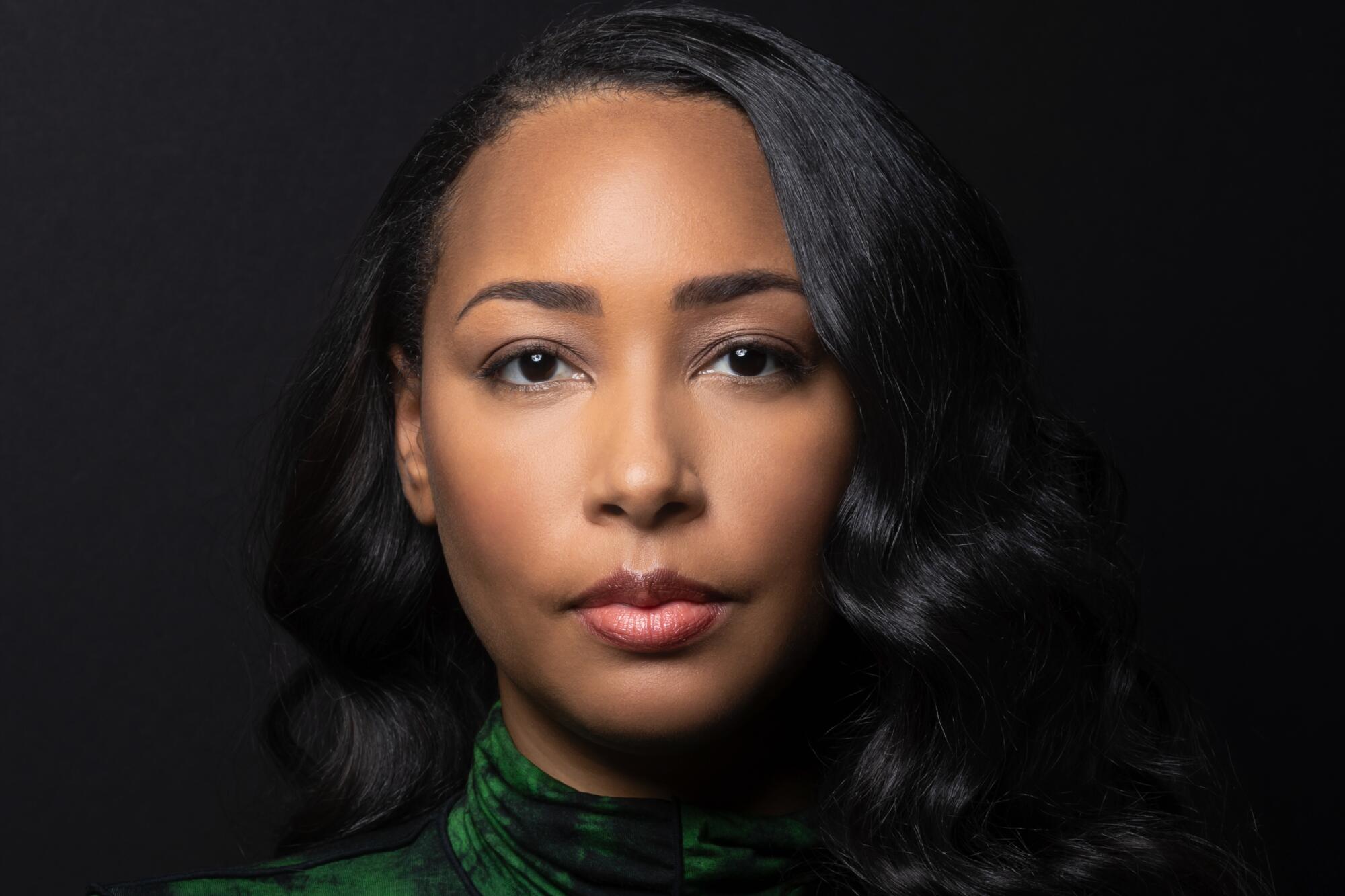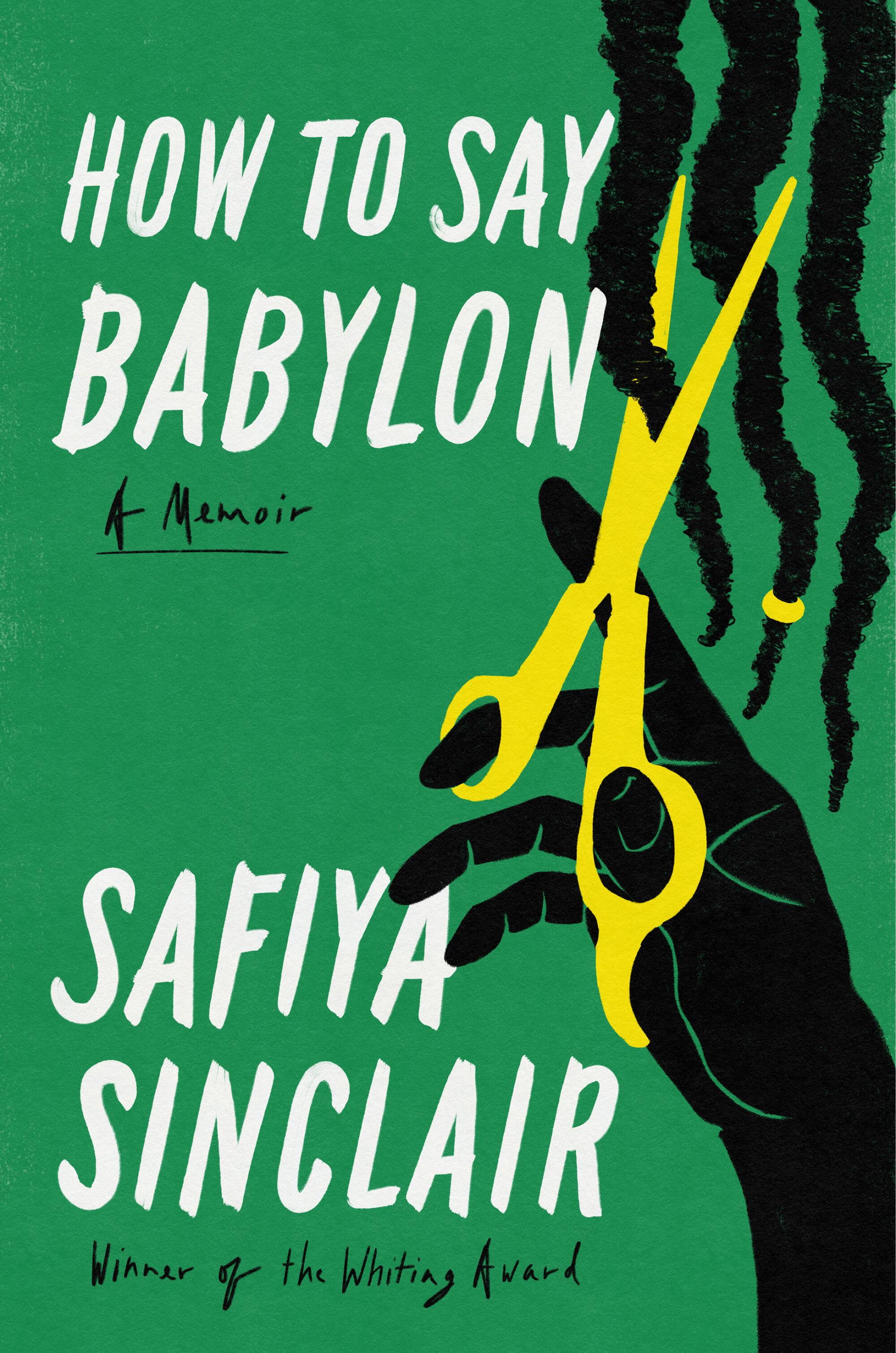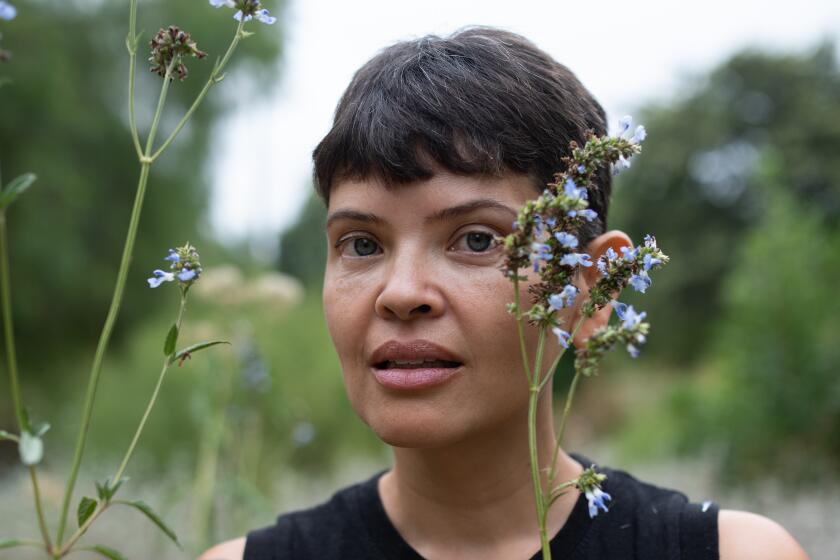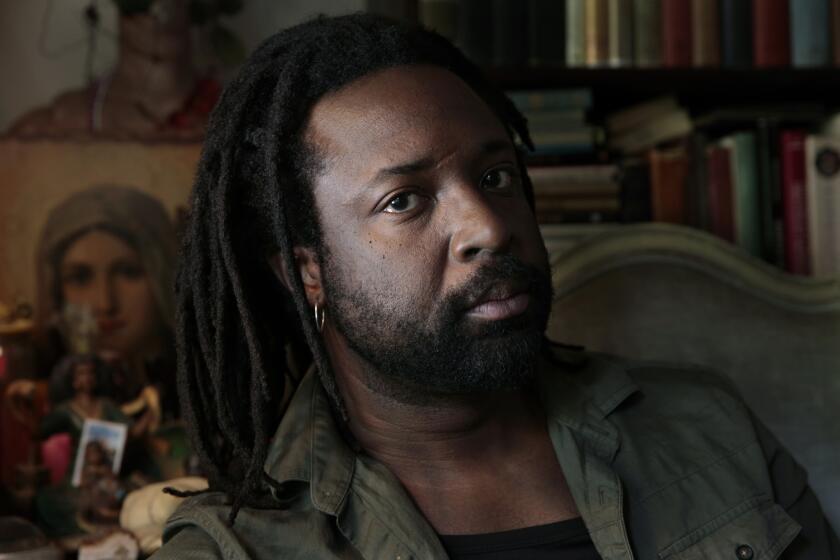
- Share via
Fall Preview Books
How to Say Babylon: A Memoir
By Safiya Sinclair
37 Ink: 352 pages, $29
If you buy books linked on our site, The Times may earn a commission from Bookshop.org, whose fees support independent bookstores.
Ask Safiya Sinclair where she’s from, and there’s no one answer. She lives in Phoenix, where she is an associate professor of creative writing at Arizona State University. She joined a recent video chat from Fort Lauderdale, Fla., where she is visiting family. “But home, the bigger question of home,” she says, “is always Jamaica.”
Sinclair’s rich, harrowing memoir, “How to Say Babylon,” is a story about home and its fragmentation. Raised in Jamaica’s Montego Bay, she grew up under the thumb of her domineering father, an adherent of Rastafari who labored to insulate his wife, Sinclair and her siblings from the perils of Babylon — that is, the legacy of British Empire and Westernness writ large. “Babylon was the government that had outlawed them, the police that had pummeled and killed them,” she writes.
Gurba’s essays, collected in ‘Creep,’ showcase an unblinking gaze at gender-based violence and other cruelties, which the author would rather be known for.
But for all her father’s righteous resistance to authority, his parenting was by turns blinkered, oppressive and physically abusive. As a teen, Sinclair found release in writing, discovering authors who evoked her frustration and anger. Her favorite poems — Sylvia Plath’s “Daddy” was a big one — offered an escape hatch. In time, Sinclair would become a poet herself, winning a Whiting Award and publishing an acclaimed collection, “Cannibal,” in 2016. That experience motivated her to bring a poetic lyricism to the memoir as well.

“I always had a very distinct idea of how I wanted the book to read,” she says. “On the sentence level, stylistically, I wanted the poet jumping out — I really wanted the words to feel lush and luscious. I wanted it to be kind of rigorous. I wanted it to be an infusion of or parallel to the Jamaican landscape. The kind of humid kiss of Jamaica is what informs a lot of how I wanted the sentences constructed.”
It took a decade for her to get there. Sinclair began writing the memoir in 2013, not long after she left Jamaica and began studying creative writing at the University of Virginia. But, she recalls, her anger toward her father was too all-consuming and unresolved; she needed, she writes in the book, to tell her story from a “place of safety.” (Her defiance is exemplified in a scene where she sheds her dreadlocks, which her father had insisted she keep.)
“Instead of ending on a wound,” she says, “or writing out from a place of hurt or a place of vengeance, I really wanted the book to be written from a place of hope wherever I could find it.”
Marlon James’ “A Brief History of Seven Killings,” is a thrilling, ambitious fictionalization of the assassination attempt on Bob Marley in 1976 and the afterlives of Marley’s would-be assassins.
She rebooted the project by interviewing her father, striving to understand his interest in Rastafari, working to untangle his personal motivations and how she came to inherit so much of his sensibility. The hardest thing for her to shake was the sexist, patriarchal mind-set of many of the Rastafari she knew — a common issue among women who grow up in the religion, she says.
“Most of the women I know who grew up Rastafari, they have left it,” she says. “There are many women who come to it once they’ve grown up — maybe they grew up in a Christian house and then they decide that they want to be Rastafari. But that happens in adulthood. Everybody I know who was born in it, they had a breaking point.”
Beyond “How to Say Babylon,” Sinclair is working on a new poetry collection and drafting her first novel, which she describes as an epic covering 500 years of Jamaican history, from Columbus’ arrival on the island to the near future. Sinclair says her father hasn’t yet read “How to Say Babylon,” beyond a recently published excerpt in the New Yorker. But she says she’s confident he’ll be approving.
The 14 essential L.A. life stories, from Hollywood tell-alls to immigrant sagas, hard lives (Luis Rodriguez) and spectacular flameouts (Freeway Rick Ross).
“He didn’t always understand [my work],” she says. “But I think he is proud — well, Rastas don’t feel proud — but he has expressed to me that he feels very irie about what I’m doing with my work.”
Athitakis is a writer in Phoenix and author of “The New Midwest.”
More to Read
Sign up for our Book Club newsletter
Get the latest news, events and more from the Los Angeles Times Book Club, and help us get L.A. reading and talking.
You may occasionally receive promotional content from the Los Angeles Times.














